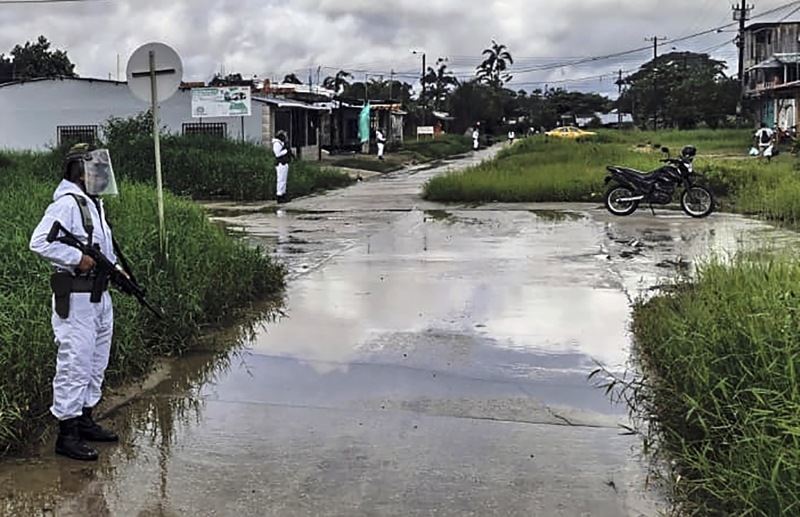RIO DE JANEIRO, BRAZIL – An “epidemic” of misinformation spread through Colombia just as the number of confirmed cases of COVID-19 increased, adversely influencing the country’s response to the disease. Over the more than four months since the first patient was detected, the population has been receiving contradictory or false messages spread across social media, which has sparked fear of seeking medical care and placed health professionals at risk.
The Doctors Without Borders (MSF) organization witnessed this situation in Tumaco and North Santander, where primary and mental health operations required reorganization to support the public system in response to COVID-19. In the course of its activities, the MSF identified the spread of a rumor that the disease was an “invention” to let people die because of money, which led to threats and attacks against healthcare teams.

In many cases, the limited response of healthcare institutions fuels this situation. “In Tumaco, for instance, the delay in delivering test results and the lack of clarity regarding the treatment of suspected COVID-19 cases leads to confusion and distrust among the population,” explains Germán Casas, president of the Doctors Without Borders Association in Latin America.
“In Tibú, authorities resigned after receiving threats from patients’ relatives who were not adequately advised of the protocols to be followed in the case of confirmation of positive cases, treatment and deaths,” Casas added.
Fighting against a little-known and highly contagious disease in such a distorted context is a tremendous challenge. As an organization with broad experience in epidemics in several countries around the world, the MSF knows firsthand the crucial role played by measures such as social distancing, hand hygiene, the wearing of masks and the correct flow of information in containing the virus.
For this reason, along with direct support in hospitals, the organization’s teams have focused their efforts on spreading messages of promotion and prevention, the impact of which in many cases is severely limited by misinformation.
The MSF is implementing a campaign to support healthcare professionals through social media. Positive and informative messages need to be shared to clarify doubts and build support for medical staff. Under the motto “united we are more”, the organization seeks to invite the communities of Tumaco and Tibú to support local healthcare professionals.
Similarly, the MSF has seen how this confusing environment has hindered the treatment of other diseases because people cease attending hospitals for fear of contracting the novel coronavirus. At the Tibú and Tumaco hospitals, the number of accesses to emergency care, outpatient appointments and the COVID-19 room itself have been clearly reduced. In the second level services, there are growing requests for critical cases, and resuscitations are more frequent due to the fact that patients come at very advanced stages of their pathologies.
“It is scandalous that after more than four months since the first case of COVID-19 in the country was confirmed, we are still trying to convince people that it is not just a flu and that taking care of oneself and others is critical. People should be able to go to hospitals with confidence, knowing that there is no risk of contagion,” Casas says.
“To that end, the government and institutions must do more to ensure compliance with protocols and adequate protection for healthcare personnel. It is the way to prevent more infections and prevent more deaths.”

